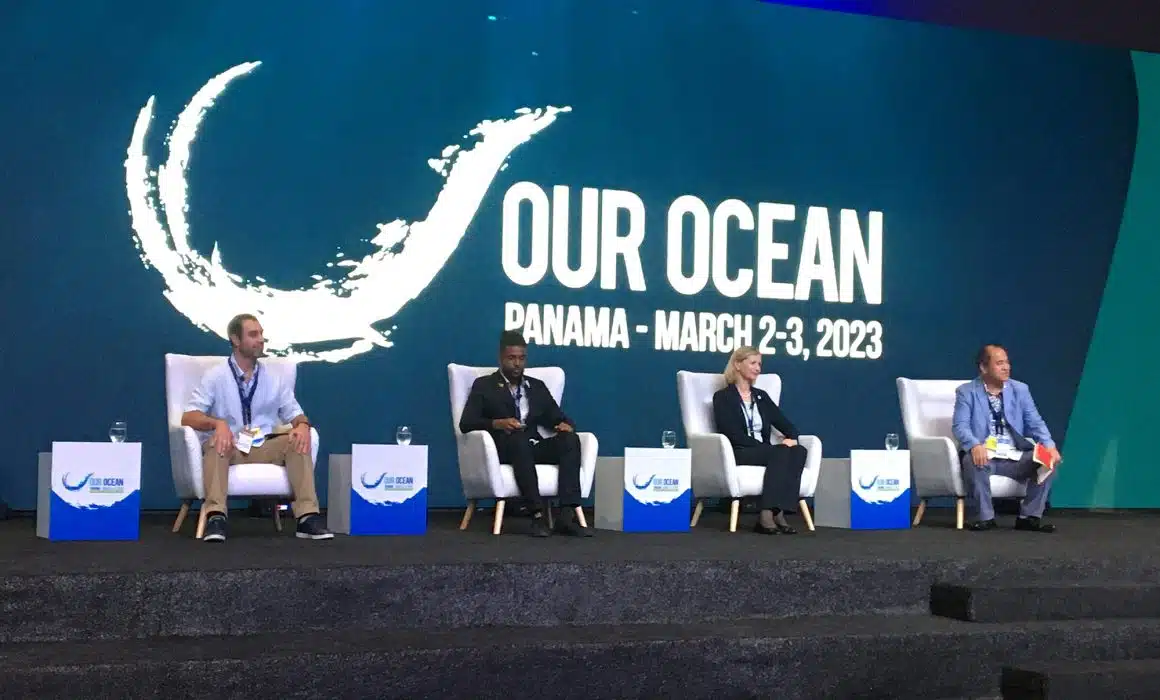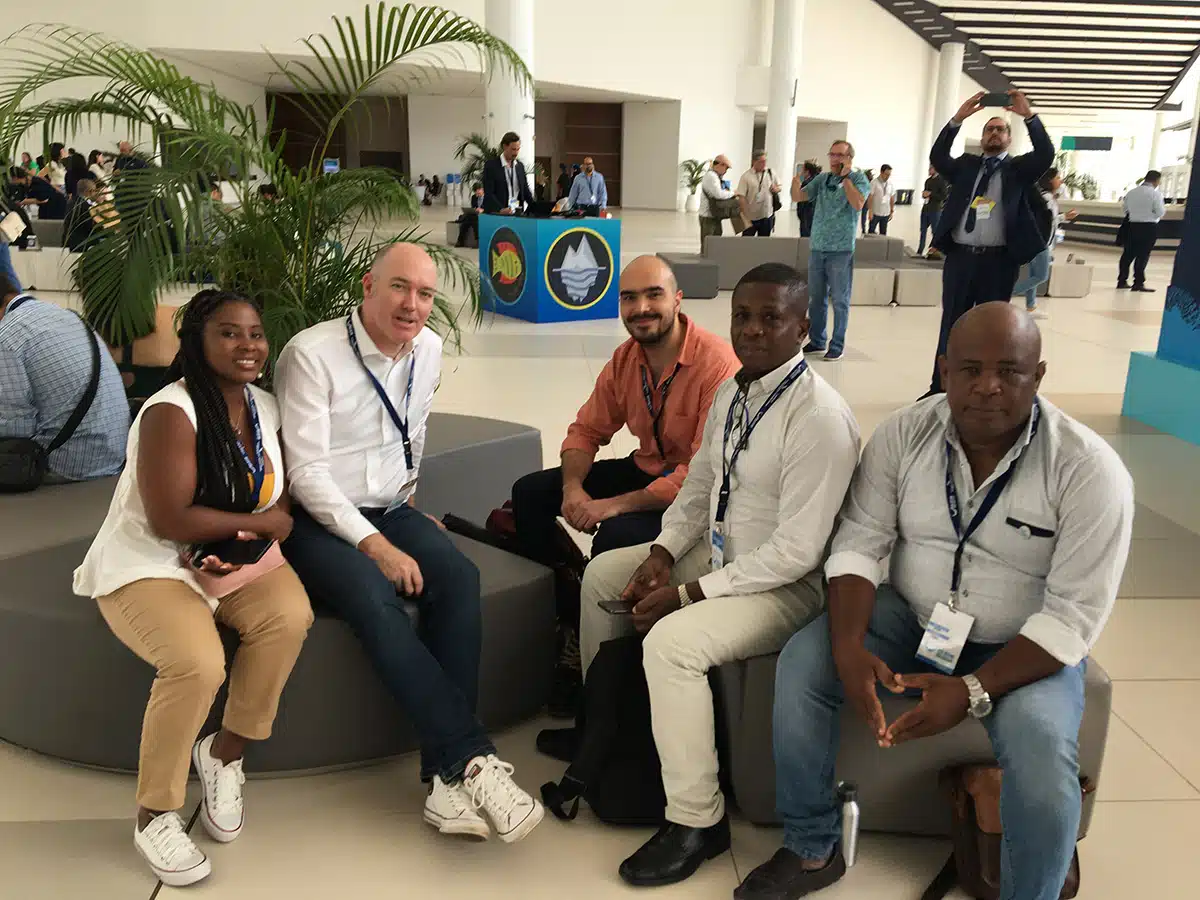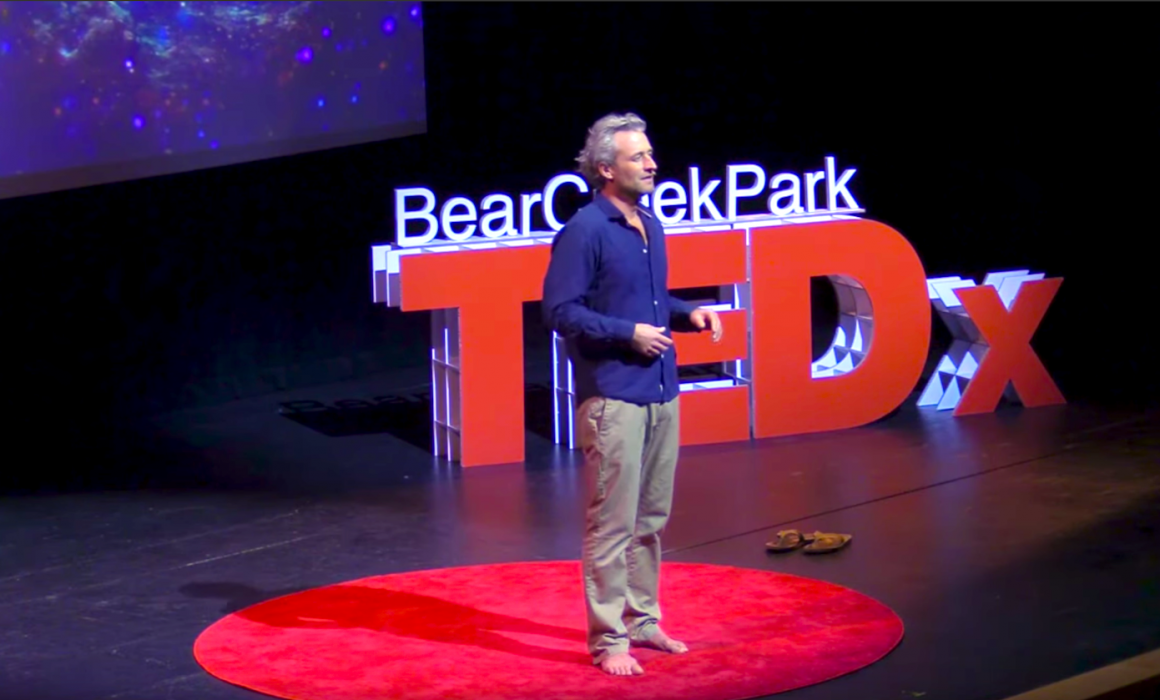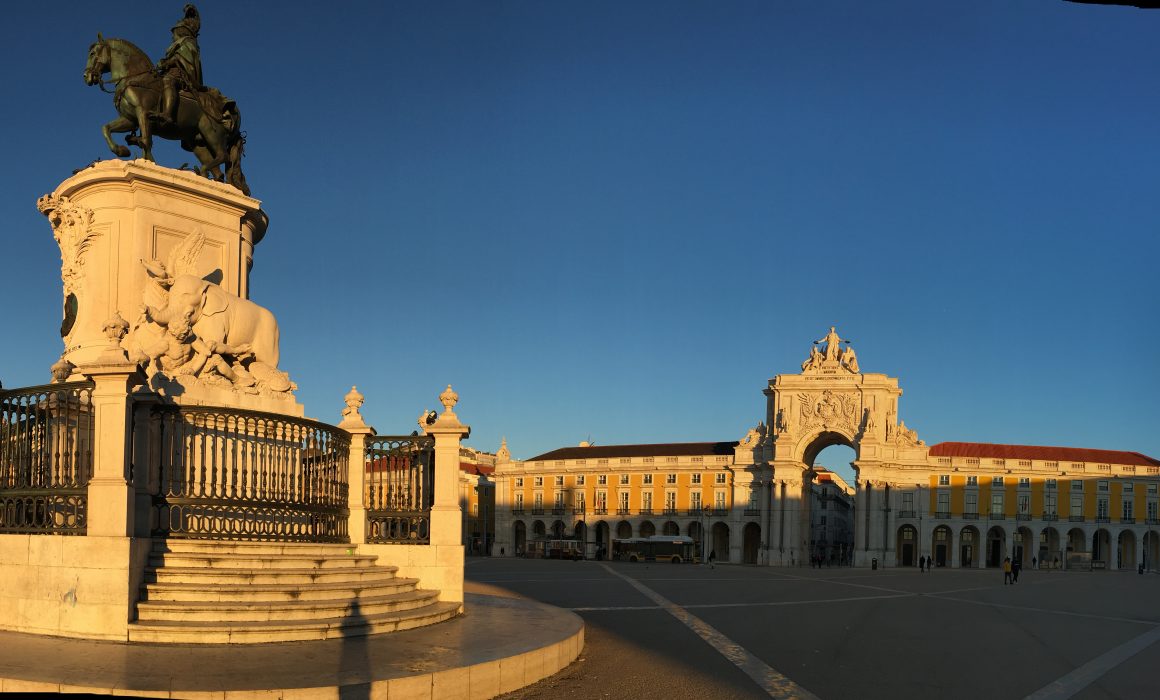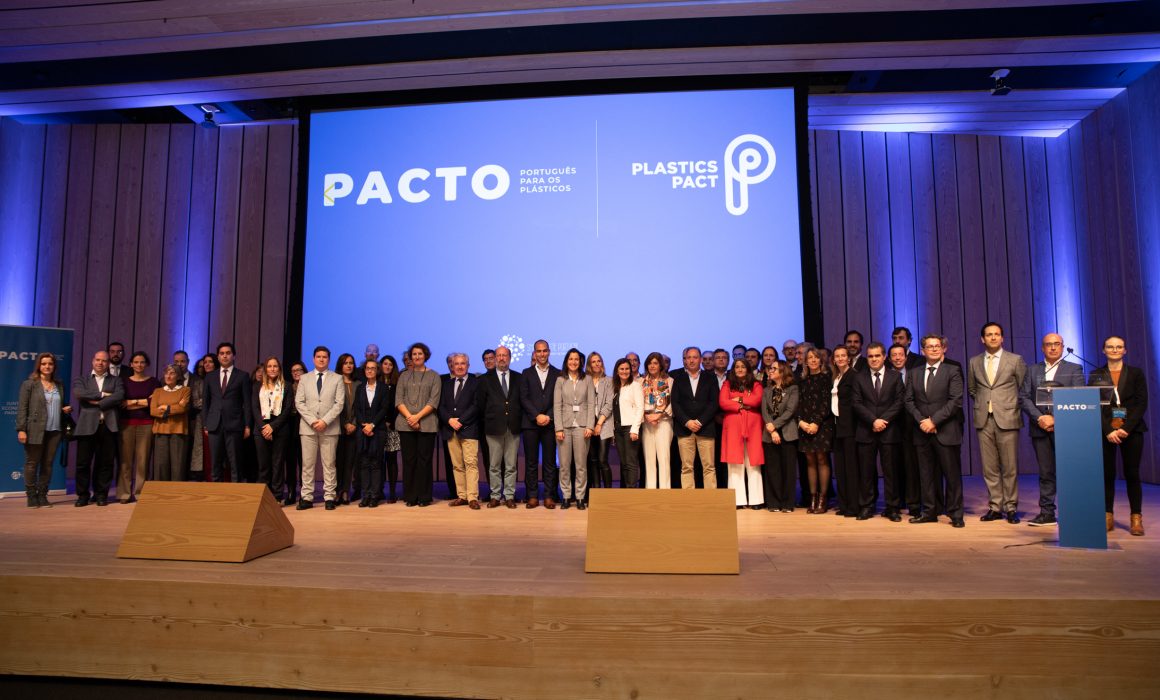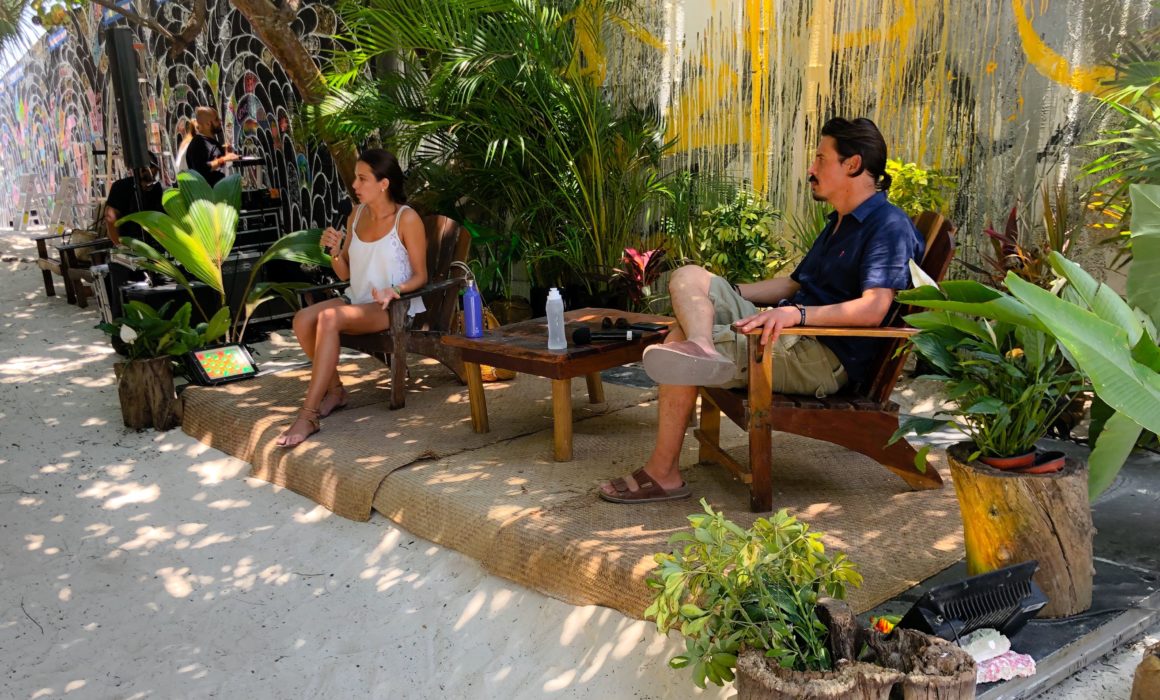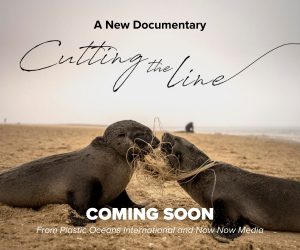Plastic Oceans International Participates in Our Ocean 2023 With a Side Event About the Impacts of Fishing Gear
This year’s conference brought together more than 600 global ocean experts and generated over 340 ocean action commitments worth $19 billion.
The Our Ocean conference is a yearly event to draw international attention to the serious threats facing the world’s ocean, committing to concrete action around the globe to support marine conservation and sustainable development. The eighth edition of Our Ocean 2023 was held for the first time in the central American country of Panama. Apart from being amazing hosts, Panama also set an example of blue leadership when Panamanian President Laurentino Cortazzo made a major announcement to expand the Banco Volcán marine reserve six times! Making Panama one of the few countries surpassing the 30% of ocean protection threshold far before the expected year of 2030.
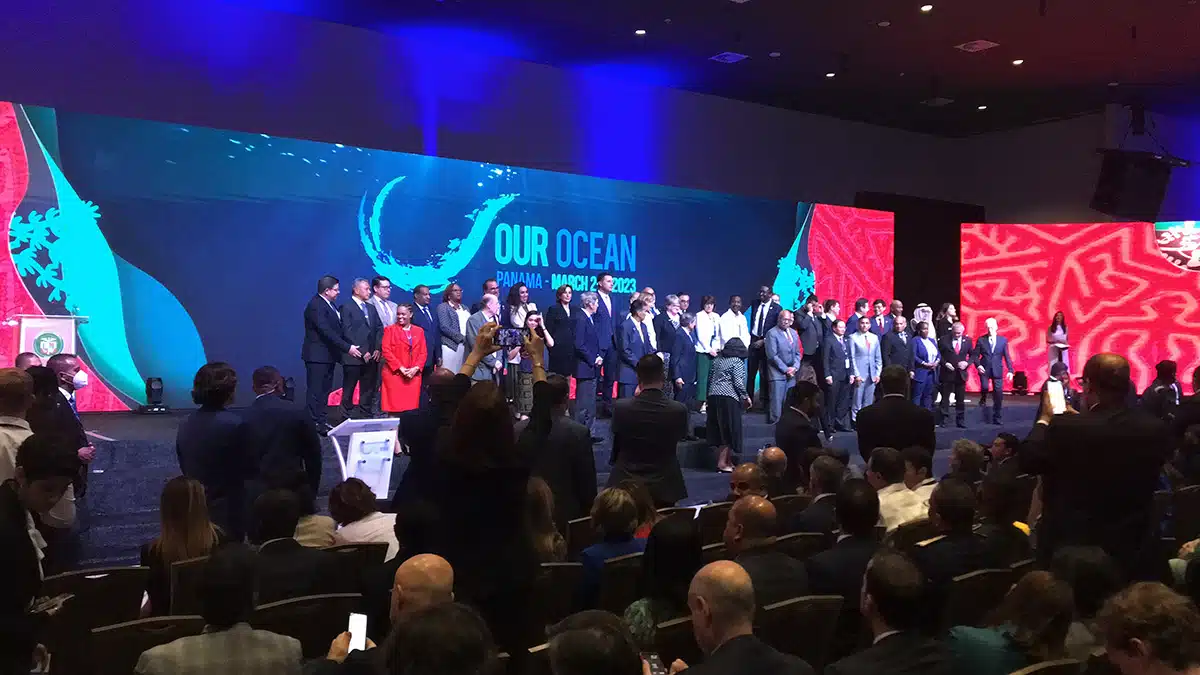
Official high-level photo with world leaders on day one of the conference. © Plastic Oceans International
Our Ocean 2023 was much more than only countries and philanthropists committing to better protect the ocean and to finance more scientific research, it was also a great opportunity to meet with other global NGO´s and experts, hear what they are working on and learn about other projects.
Plastic Oceans had been selected to host an official side event at the conference about plastic pollution from the fishing industry and the impact it has on local communities. It was the perfect place to show the participants a ten-minute cut of our soon to be released film Cutting the Line, which tells the story of the Dryer family and Ocean Conservation Namibia dealing with pollution from fishing lines and how this fishing gear is heavily affecting the local seal population.
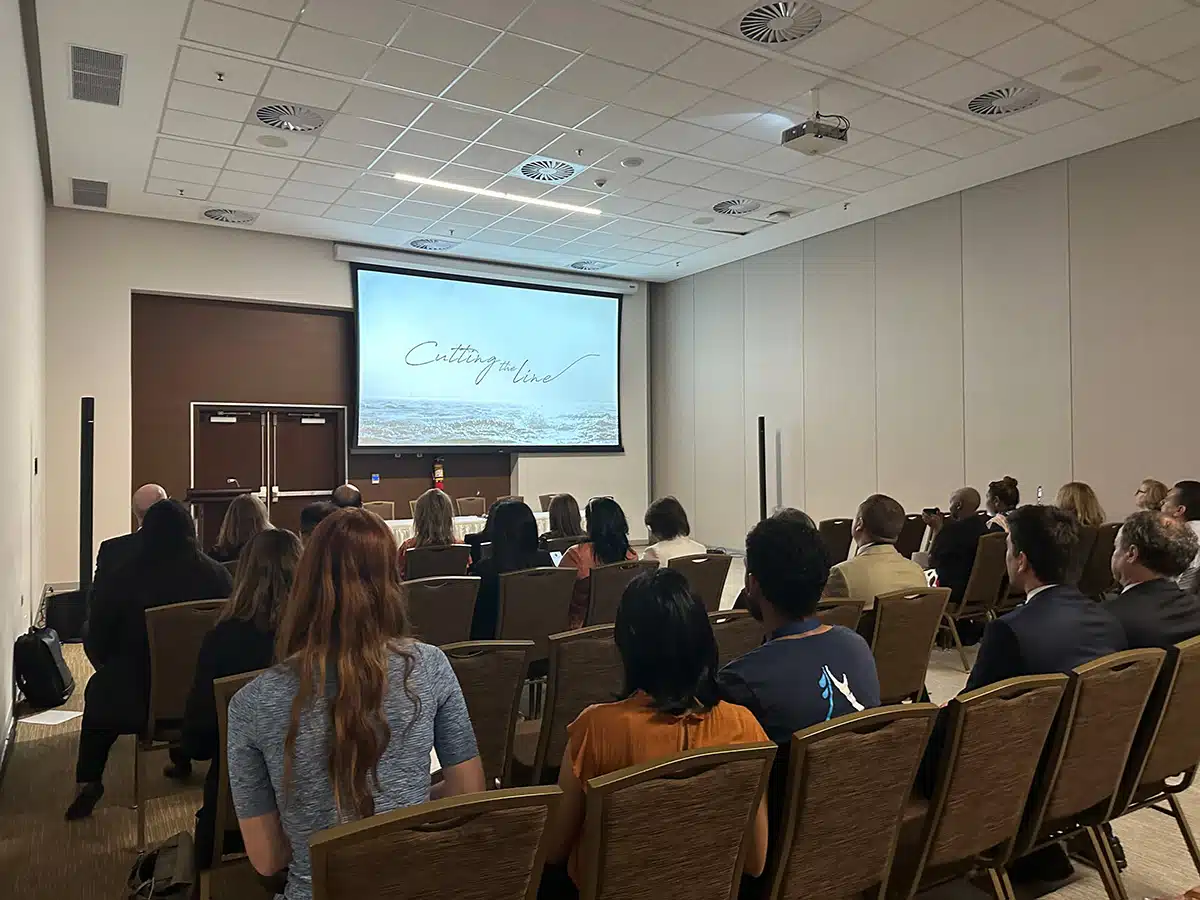
Screening of the 10-minute cut of Cutting the Line.
During the introduction of the event our Director of Advocacy Mark Minneboo explained to the public what our film model for change is all about.
“Films can reach people from all ages and cultures. It reaches places where we can’t come as an organization. Films inform, they explain and educate, and they reach people’s hearts. Because that´s the place we need to get to be able to inspire meaningful change and generate action from all stakeholders.” Mark said and added: “Our Film Model for Change is not just about making films and distributing them and hoping for change to occur by itself. We have teams (and partners) around the world who take these films to communities. And build relationships with them and use our educational guides to advocate for change.”
The film presentation was followed an expert panel about lost, abandoned or otherwise discarded fishing gear. This pollution roughly represents 20% of all ocean plastic pollution, and in some parts of the world even more. A study released by the Ocean Cleanup and published in Nature in 2022 showed that between 75 and 86% of the floating plastic mass (> 5 cm) in the north pacific garbage patch could be considered abandoned, lost or otherwise discarded fishing gear (ALDFG). Apart from this international contamination, many small coastal communities are facing their own problems with discarded fishing nets. Where it threatens biodiversity, food sources and people’s income.
With the expert panel we wanted to be focusing on this issue and learn more about what they and their institutions have been working on over the years, the obstacles they are facing in their work and their take on how the global plastics treaty could help accelerate solutions.
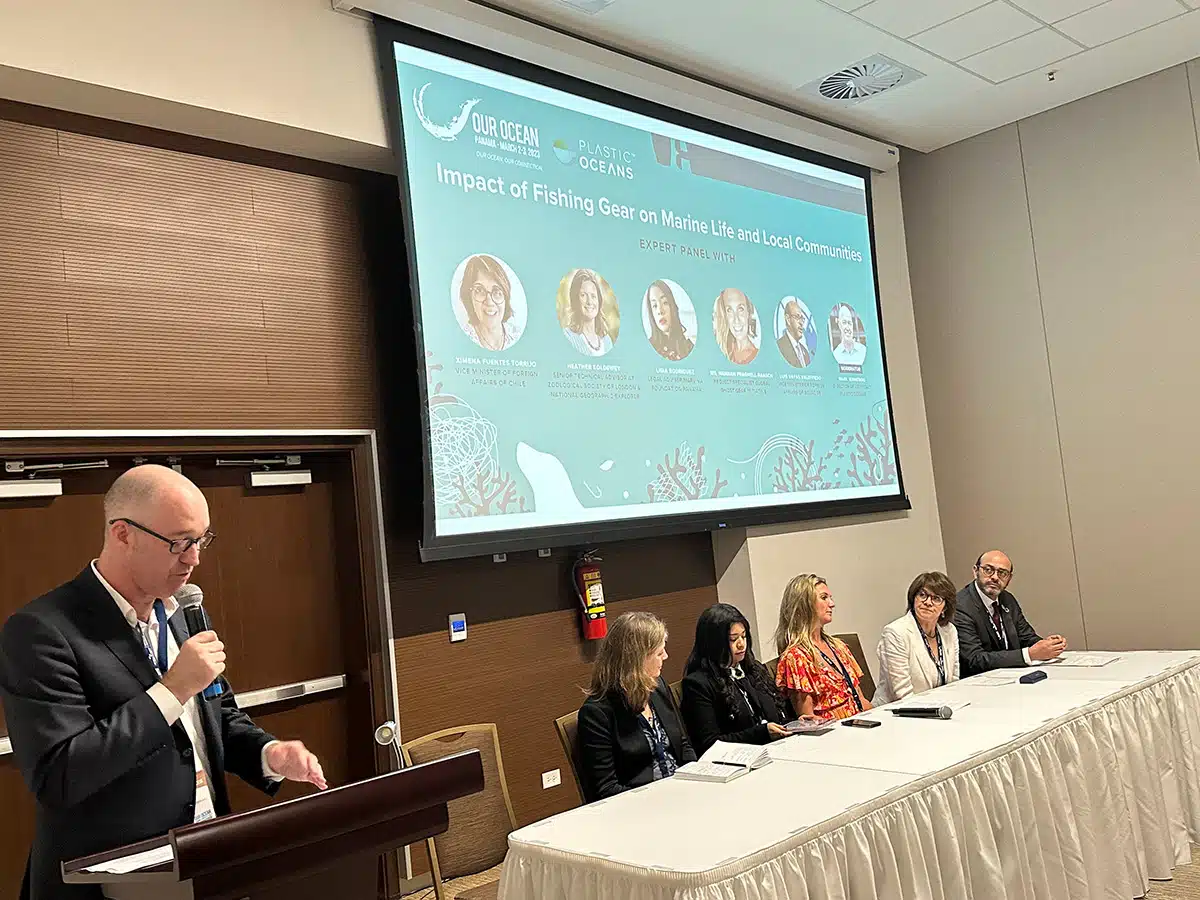
Plastic Oceans´ Director of Advocacy Mark Minneboo moderating the expert panel at Our Ocean Panama
Our panel consisted of:
- Ximena Fuentes Torrijo – Vice Minister of foreign affairs of Chile
- Luis Vayas Valdivieso – Vice Minister of Foreign Affairs of Ecuador
- Hannah Pragnell-Raasch – Project Specialist Global Ghost Gear Initiative GGGI
- Ligia Rodriguez – Legal Adviser, Marviva Foundation Panama
- Heather Koldewey – Senior Technical Advisor at Zoological Society of London ZSL
With these experts we covered everything between local and global solutions for this massive problem. Through their interventions we got to learn more about:
- Applying the circular economy to fishing nets and generating income for fishing communities in the Philippines (Coast4c).
- A recently introduced bill to responsibly manage fishing gear in Costa Rica.
- Public private partnerships to deal with fishing gear and aquaculture waste in southern Chile.
- How civil society initiatives like GGGI bring to the forefront the issue of ghost gear as a serious problem threatening the ocean and communities.
- The push for more multi stakeholder collaboration.
- GGGI is creating a global data repository to assist all stakeholders to make informed decisions.
Visit our youtube channel to watch and learn more about the impact of fishing gear along with what our panel had to say about it HERE!
An integral part of the side event was to link the issues of ghost fishing. Gear to the global plastic treaty. In the UNEA resolution from February 2022 extended producer responsibility (EPR) was mentioned as an effective solution to combat plastic pollution. The panelists agreed this could be a valuable solution for regulating gear from the fishing and aquaculture industry. Panelists concluded EPR could definitely help with traceability. Reporting of lost gear and create a closed loop system for fishing gear. Making sure it never becomes waste. Although it’s not a silver bullet and needs to be part of a larger framework. Where unavoidable waste can have value and where a global treaty can help scale local solutions to global ones.
After two intense days in Panama City. We went home motivated by all that was achieved in very little time. The ocean is taking center stage when world leaders talk about conservation. Human development and well-being. And a lot of commitments were made. We had the chance to be inspired by civil society leaders from all over the world. Learn about other impactful projects focused on plastic pollution and ocean conservation. Now it’s time to make sure that the commitments on paper and the announced collaborations become real impactful solutions. Before the next Our Ocean conference in 2024 in Greece. We will be there to ask the questions and follow up!
Mark Minneboo is Director of Advocacy at Plastic Oceans International. And he represented the organization at the Our Ocean Conference in Panama. He is in charge of the development of our advocacy program, including local, national and global perspectives. Since 2021 he has been participating in global conversations and workgroups about the Global Plastics Treaty.

